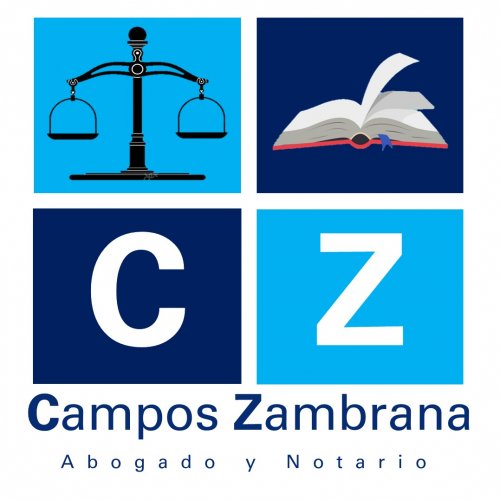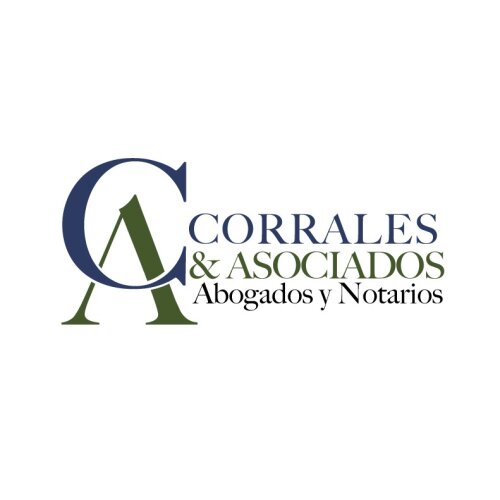Best Landlord & Tenant Lawyers in Nicaragua
Share your needs with us, get contacted by law firms.
Free. Takes 2 min.
Free Guide to Hiring a Real Estate Lawyer
Or refine your search by selecting a city:
List of the best lawyers in Nicaragua
About Landlord & Tenant Law in Nicaragua
Landlord and Tenant law in Nicaragua is governed by the country's Civil Code, which outlines the rights and obligations of both parties in a rental agreement. In general, the legislation seeks to balance the interests of landlords and tenants, ensuring that both parties can engage in fair and transparent rental arrangements. The legal framework provides guidelines for lease agreements, rent control, eviction procedures, and dispute resolution mechanisms.
Why You May Need a Lawyer
Engaging a lawyer can be crucial in navigating the complexities of landlord and tenant relationships. Common situations where legal assistance may be needed include:
- Disputes over rental agreements and terms.
- Eviction proceedings and tenant removal.
- Rent increase disputes or fee negotiations.
- Property damage claims and liability issues.
- Violation of tenant rights under Nicaraguan law.
- Drafting and reviewing lease agreements to ensure compliance with legal standards.
Local Laws Overview
Nicaraguan laws relevant to landlords and tenants cover several key areas:
- Lease Agreements: These must be written and include essential terms such as the rental amount, duration, and obligations of both the landlord and tenant. Oral agreements are discouraged but may be enforceable under certain conditions.
- Rent Control: There are regulations in place to prevent excessive rent increases, and landlords must justify any significant rent hikes.
- Tenant Rights: Tenants have rights to habitability, privacy, and protection against unlawful eviction. Landlords must ensure the property is safe and in good condition for tenants.
- Eviction Procedures: Evictions must follow legal procedures, requiring a court order in most cases. Unlawful evictions can result in penalties for landlords.
- Security Deposits: There are guidelines on the handling and return of security deposits, including permissible deductions for damages beyond normal wear and tear.
Frequently Asked Questions
What should I include in a rental agreement?
A comprehensive rental agreement should include the names of both parties, the rental property address, the rent amount and payment terms, the duration of the lease, maintenance responsibilities, and any additional rules or stipulations agreed upon by both parties.
Can my landlord increase my rent arbitrarily?
No, landlords are required to follow legal guidelines regarding rent increases. Any rent increase must be justifiable and comply with applicable rent control regulations.
What are my rights as a tenant if my rental property needs repairs?
Tenants have the right to a habitable living environment. If repairs are needed, the tenant should notify the landlord in writing and allow a reasonable time for the landlord to address the issue. If repairs are not made promptly, further legal action may be necessary.
What is the process for legal eviction in Nicaragua?
Eviction requires a court order. Landlords must provide a valid reason for eviction, such as non-payment of rent or violation of lease terms. The tenant has the right to contest the eviction in court.
Is subletting allowed under Nicaraguan law?
Subletting is generally permissible unless explicitly prohibited by the rental agreement. Tenants should obtain consent from the landlord before subletting the property to avoid potential disputes.
How can I get my security deposit back?
To ensure the return of the security deposit, the tenant should ensure the property is in good condition upon vacating. Deductions for repairs or cleaning must comply with the terms of the rental agreement and legal guidelines.
What recourse do I have if my landlord enters the property without my permission?
Tenants have a right to privacy. Unauthorized entry by the landlord can result in legal action. Tenants may seek assistance from a lawyer to address violations of privacy.
Can a landlord refuse to renew my lease without a reason?
A landlord may choose not to renew a lease once it expires, but they cannot evict a tenant before the lease ends without a valid legal reason.
What should I do if I have a dispute with my landlord?
Tenants should attempt to resolve disputes amicably and keep written records of all communications. If necessary, consult a lawyer or mediation services to assist in dispute resolution.
Does Nicaraguan law protect against discrimination in housing?
Yes, Nicaraguan law prohibits discrimination in housing based on race, ethnicity, gender, religion, or any other protected category. Tenants who experience discrimination should seek legal advice immediately.
Additional Resources
For further assistance, consider contacting the following resources:
- Ministry of Housing and Human Settlements: Provides guidance on housing policies and tenant rights.
- Legal Aid Organizations: Offer free or low-cost legal services for eligible individuals.
- Consumer Protection Agencies: Assist in resolving disputes related to housing and rental agreements.
Next Steps
If you require legal assistance in a landlord and tenant matter, follow these steps:
- Consult a lawyer: Look for a legal professional who specializes in landlord and tenant law to provide personalized advice and representation.
- Gather documentation: Collect all relevant documents, such as rental agreements, communication records, and proof of payments, to support your case.
- Understand your rights: Educate yourself on Nicaraguan laws related to landlord and tenant relationships to better navigate your situation.
- Explore mediation: Before pursuing legal action, consider mediation as a less adversarial way to resolve disputes.
By following these steps and utilizing available resources, you can better manage landlord and tenant issues in Nicaragua.
Lawzana helps you find the best lawyers and law firms in Nicaragua through a curated and pre-screened list of qualified legal professionals. Our platform offers rankings and detailed profiles of attorneys and law firms, allowing you to compare based on practice areas, including Landlord & Tenant, experience, and client feedback.
Each profile includes a description of the firm's areas of practice, client reviews, team members and partners, year of establishment, spoken languages, office locations, contact information, social media presence, and any published articles or resources. Most firms on our platform speak English and are experienced in both local and international legal matters.
Get a quote from top-rated law firms in Nicaragua — quickly, securely, and without unnecessary hassle.
Disclaimer:
The information provided on this page is for general informational purposes only and does not constitute legal advice. While we strive to ensure the accuracy and relevance of the content, legal information may change over time, and interpretations of the law can vary. You should always consult with a qualified legal professional for advice specific to your situation.
We disclaim all liability for actions taken or not taken based on the content of this page. If you believe any information is incorrect or outdated, please contact us, and we will review and update it where appropriate.
Browse landlord & tenant law firms by city in Nicaragua
Refine your search by selecting a city.










